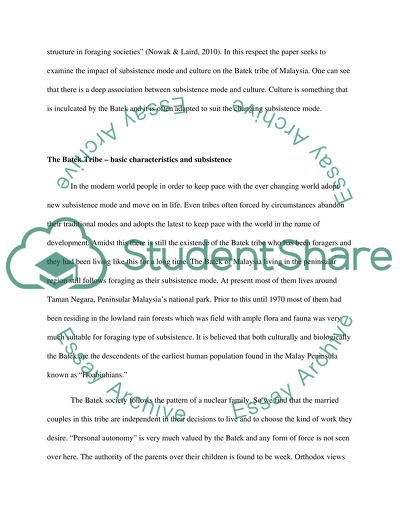Cite this document
(“Batek Tribe of Malaysia Research Paper Example | Topics and Well Written Essays - 2000 words”, n.d.)
Retrieved de https://studentshare.org/anthropology/1391516-research-paper
Retrieved de https://studentshare.org/anthropology/1391516-research-paper
(Batek Tribe of Malaysia Research Paper Example | Topics and Well Written Essays - 2000 Words)
https://studentshare.org/anthropology/1391516-research-paper.
https://studentshare.org/anthropology/1391516-research-paper.
“Batek Tribe of Malaysia Research Paper Example | Topics and Well Written Essays - 2000 Words”, n.d. https://studentshare.org/anthropology/1391516-research-paper.


